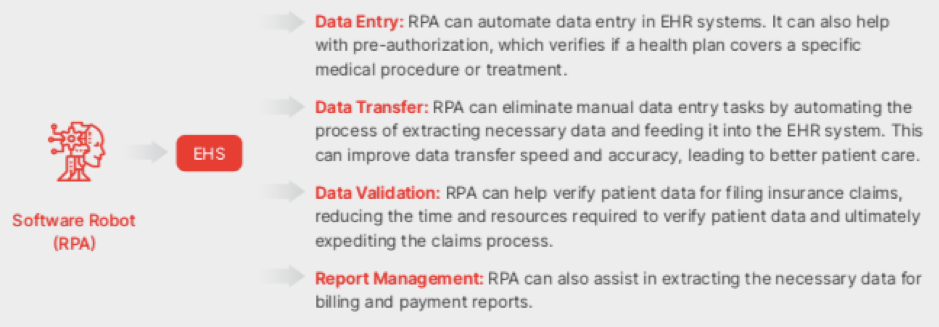
Digital transformation has revolutionized and indefinitely reshaped the way we do business, and the healthcare sector has not been exempted from this rapid evolution. Gone are the days when healthcare providers used to rely on paper and pen to document individual patients' information. With the advent of electronic health records (EHR), the healthcare industry has taken a giant leap toward a more efficient and accurate healthcare system.
What’s EHR?
In the inauguration of the digital revolution, healthcare is one of the industries that has seen a substantial transformation. One of the constituents changing healthcare operations is electronic health records (EHRs). EHR refers to an electronic data version of a patient's medical history. These data may include demographics, disorders, medications, past medical history, immunizations, laboratory data, and radiology reports, in addition to providing real-time access to patient data. EHRs are becoming increasingly common among healthcare providers because they allow for more effective patient care, improved communication among healthcare stakeholders and empower better healthcare outcomes.
The challenges of EHRs
However, while EHRs can enhance workflows and accessibility, it is arduous to comprehend the systems and capitalize on their full aptitude extensively. Healthcare organizations often face inefficiencies and workflow challenges when designing, customizing, and implementing EHRs. The lack of interoperability between different EHR systems can lead to data fragmentation, making it difficult to exchange and share patient information across departments.
- Data contamination is a pressing concern in the healthcare industry, particularly when capturing and entering clinical data into electronic health record (EHR) systems. Healthcare staff are still required to manually enter data into EHR systems, which poses a significant challenge for the industry as it increases the chances of human error. These include transcription errors, data entry mistakes, and inconsistencies in data formatting, leading to inaccurate information and ultimately causing data contamination.
- Not user-friendly: EHR systems lack user-friendly interfaces. The complex user interface makes it difficult to agree on how information should be gathered, who should enter it, and where it should be entered. The complex interfaces can lead to inconsistencies in data entry, making it challenging to access and extract meaningful data. As a result, this can have a repercussion on the operational efficiency of healthcare professionals and, ultimately, the standard of care given to patients.
- Workflow disruption: Healthcare providers implementing EHR without a strategic adoption plan risk experiencing business downtime. Workflow disruption is primarily attributable to staff members' unfamiliarity with the system, fragmented data, and inconsistent data migration.
Ultimately, Electronic Health Records (EHRs) serve as tools to increase efficiency and optimize business operations. Thus, how can healthcare organizations overcome barriers to improve patient care and outcomes with EHRs?
FPT Software’s Solutions
FPT Software offers solutions to help customers maximize the benefits of EHR systems, especially for those who struggle to utilize them fully. FPT Software can improve efficiency by automating rule-based and repetitive tasks using software robots (RPA). These robots can automate tasks such as data entry, validation, and report management that are typically time-consuming when performed manually.

Implementing hyperautomation solutions to EHR systems can bring numerous merits to healthcare organizations. These solutions are designed to automate patient data collection, analysis, and management, helping healthcare providers streamline their operations and allocate more resources toward critical tasks such as patient care and research. Having secure and centralized data can elevate collaboration between healthcare providers and other stakeholders as it can reduce errors and identify patients’ propensity to improve treatment protocols. Overall, hyperautomating EHR systems enables organizations to make informed decisions faster, ultimately leading to better patient outcomes.
Let us accompany you
Given the increasing prevalence of technology in the healthcare industry, organizations must proactively devise comprehensive strategies to embrace these changes and elevate their operations. FPT Software provides top-tier hyperautomation solutions tailored to the healthcare sector's specific needs. Our team of specialists has worked with leading healthcare providers worldwide to drive cost reduction, enhance speed and agility, and improve overall performance through our integrated suite of digital tools and outsourcing approach.
Are you ready to step into the digital realm and seize the benefits of hyperautomation solutions? If so, reach out to FPT Software today for more information. Our expert team will help you implement customized solutions to streamline your processes, reduce errors, and enhance overall performance.
For more information, please visit: https://fptsoftware.com/services/digital-technologies-and-platforms/hyperautomation






























